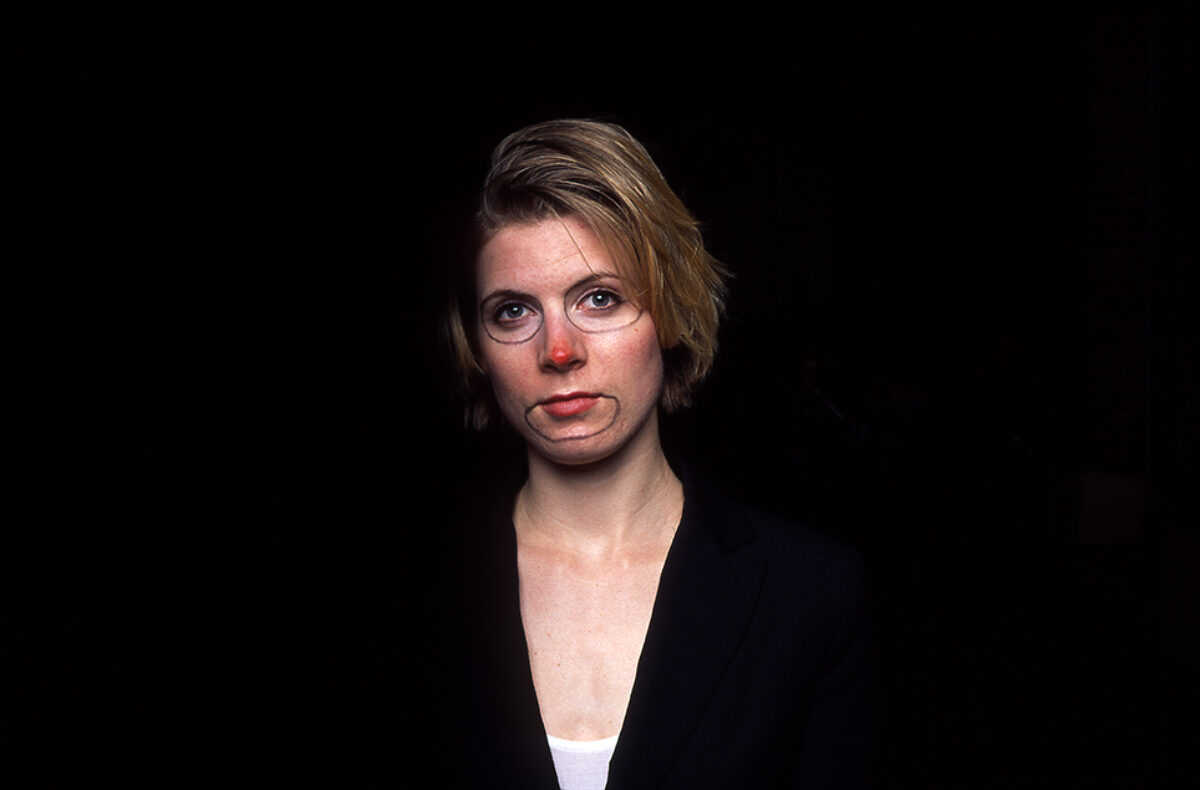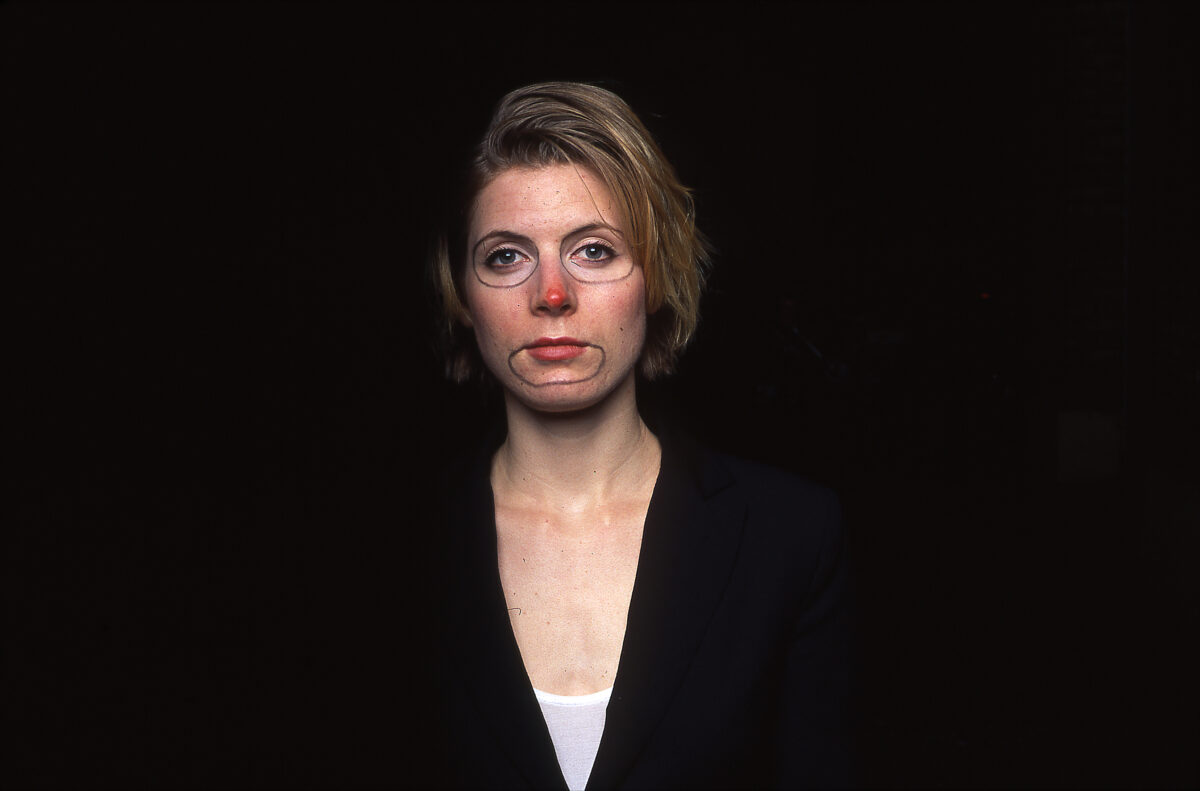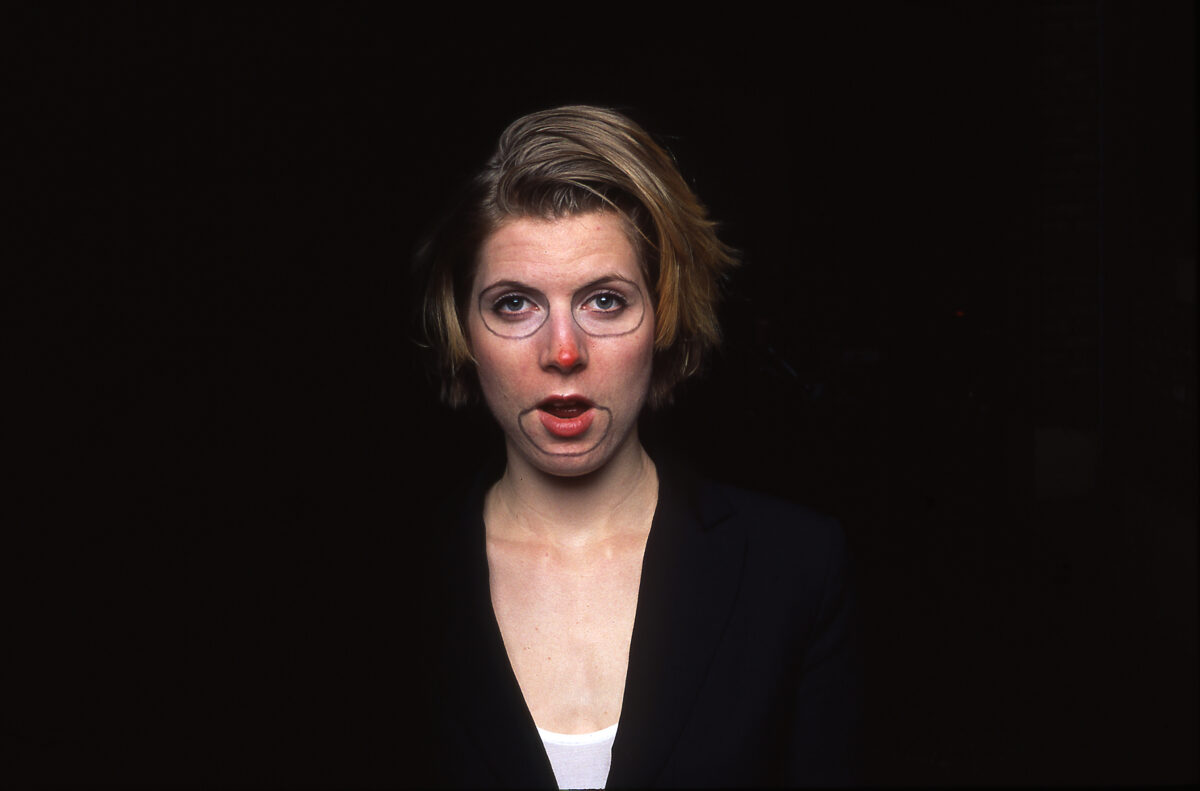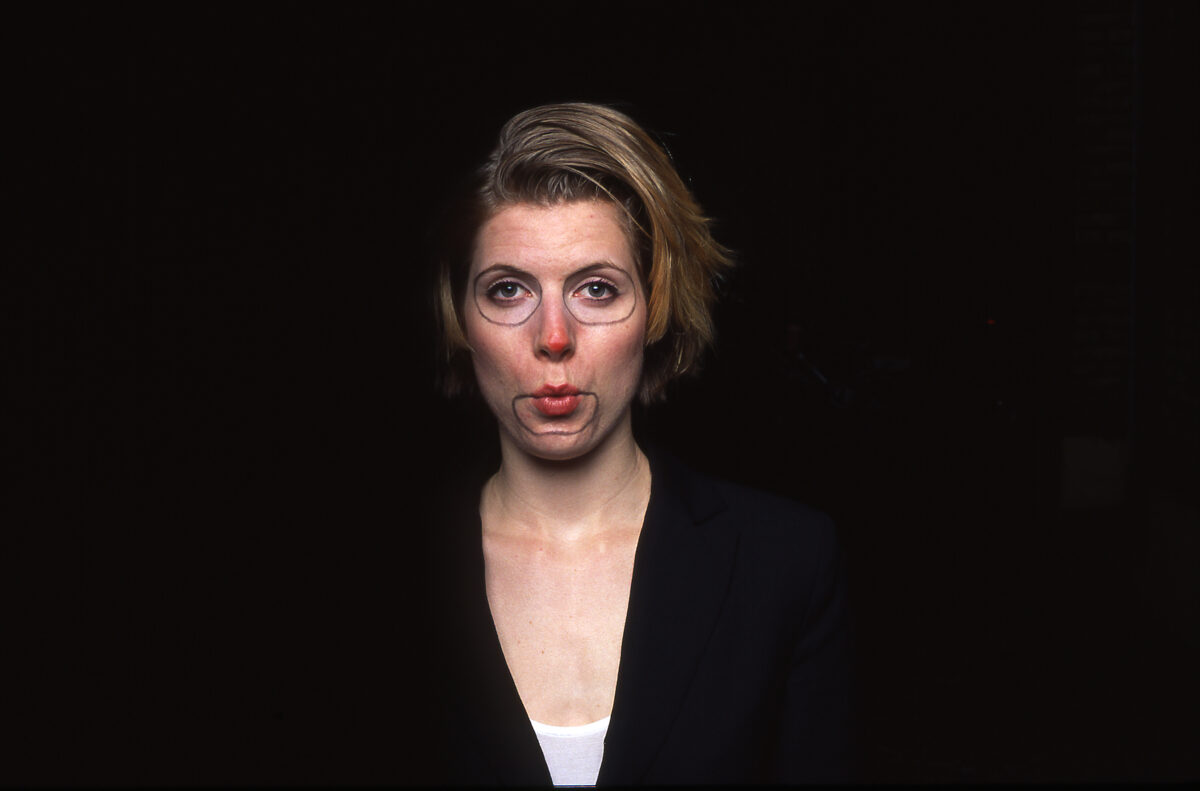Born 1979 in Altdorf, Switzerland, residing in Zurich
A healthy, supple, and fragrant body – this is the ideal of contemporary Western civilization. Droves of cosmetic firms try to implement this ideal at all costs with persuasive and influential advertising schemes. Soaps, shampoos, creams, pills, healthy and dermatologically tested, everywhere you look – and cleansing mineral water to care for the inner body as well. No magazine, televised football match, or billboard can operate without it.
And it is just this notion, this ideal and the visual world of advertising associated with it that is the aim of Pamela Rosenkranz’ art. Her method is conceptual, her statement sharply ironic, even satirical. In her series of small photos from 2010 “More Core”, she displays coloured pills for weight loss, nerves, as well as for improving performance – they glimmer like diamonds on a dark background, or they stand out from a deep emptiness like an alien eye. The pill, this mass-consumer product, becomes a fetish in and of itself. We are reminded of how Damien Hirst clustered together thousands of them into various aesthetic patterns.
Since 2009, Rosenkranz has organized shows called “Firm Being”, exhibiting plastic bottles in aseptic display cases or on the ground with labels from popular mineral water brands, filled with flesh-coloured silicon powder. These displays were then given titles – such as “Untouched by Man. Until you drink it.” – which satirized advertising slogans – in this case, the slogan used by the company FIJI. Or her target was other large mineral water companies, such as Evian.
In other situations, Rosenkranz has painted human bodies printed on plastic sheeting, Plexiglas or Spandex, elastic material used for swim suits or jogging pants. She then displays the prints as large abstract paintings. Of course, this follows from the technique of the popular “Anthropométries” by Yves Klein from the 1960s, when this artist painted nude women in ultramarine blue and had them roll all over canvases. Rosenkranz called one of her series of Spandex prints “Anima Sana in Corpore Sano” (A sound mind in a sound body), an ancient Latin proverb that is also used as an acronym for the firm ASICS. Rosenkranz’ objects and installations appear to be sterile, cold, and even aseptic, often exuding emptiness, not unlike the human body that is cleansed inside and out, treated with deodorants, and hardened in gyms.
Text by Noemi Smolik



